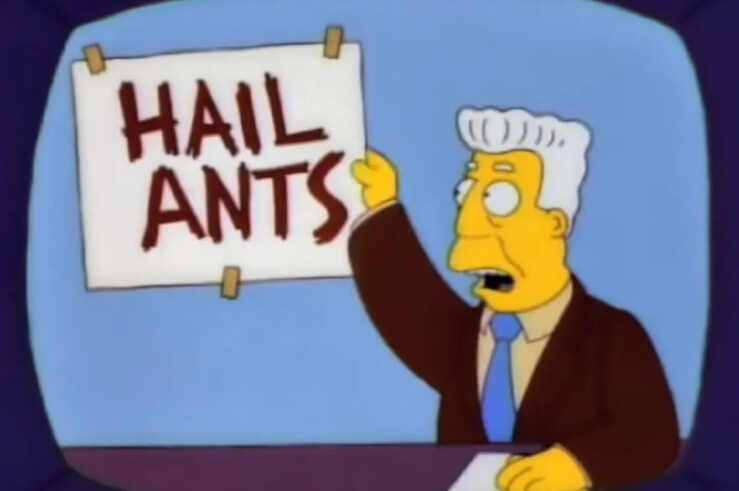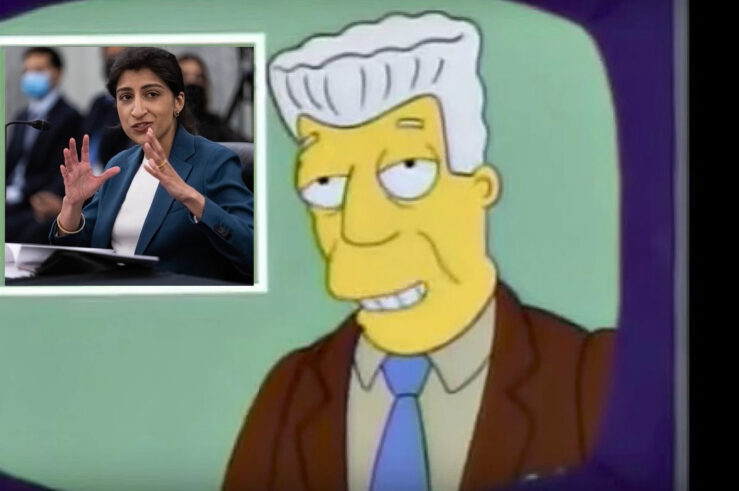Showing results for: “sirius xm merger”
The View From Brazil: A TOTM Q&A with Mariana Tavares de Araujo
How did you come to be interested in the regulation of digital markets? Prior to joining Levy & Salomão Advogados, I worked with the Brazilian government for nine years, four of which I served as head of the government agency in charge of antitrust enforcement and consumer protection policy. During this time, I was very ... The View From Brazil: A TOTM Q&A with Mariana Tavares de Araujo
A Response to Gus on Our New FTC Overlords
Gus Hurwitz’s closing post in this symposium was a very cogent and persuasive (albeit overly optimistic) take on the current state of antitrust enforcement. I hesitate to quibble with my intellectual superior, but on some points I have a slightly different take. Gus says that law should be made through legislation or litigation, and obviously ... A Response to Gus on Our New FTC Overlords
I, For One, Welcome Our New FTC Overlords
In this post—the last planned post for this symposium on The FTC’s New Normal (though we will continue to accept unsolicited submissions of responses)—I will offer some summary of the ideas that have been shared here over the past month, before turning to some of my own thoughts. To keep your attention rapt, I will ... I, For One, Welcome Our New FTC Overlords
The Changing Role of Structural Presumption at the Federal Trade Commission
The draft merger guidelines that were released July 19 by the Federal Trade Commission (FTC) and U.S. Justice Department (DOJ) indicate a shift by the agencies toward an overreliance on structural market factors to trigger merger scrutiny. For example, Draft Guideline 1—titled “Mergers Should Not Significantly Increase Concentration in Highly Concentrated Markets”—would lower the bar ... The Changing Role of Structural Presumption at the Federal Trade Commission
Draft Merger Guidelines Do Not ‘Return Antitrust to a Sound Economic and Legal Foundation’ – A Response to Professor Kwoka
In a recently published article in ProMarket, John Kwoka of Northeastern University (who “worked on the draft Merger Guidelines while serving at the Federal Trade Commission as chief economist to the chair in 2022”) asserts that the U.S. Justice Department (DOJ) and Federal Trade Commission’s (FTC) draft merger guidelines aim to improve “deficient merger enforcement” ... Draft Merger Guidelines Do Not ‘Return Antitrust to a Sound Economic and Legal Foundation’ – A Response to Professor Kwoka
Abby Normal, a Flood of Ill-Considered Withdrawals, and the FTC’s Theatre of Listening
What will become of our culture if we forget the classics? Two bits seem salient here, would that either were my own. Dr. Frankenstein: Now, that brain you gave me. Was it Hans Delbruck’s? Igor: … [pause] … No. Dr. Frankenstein: Ah! Very good. Would you mind telling me whose brain I did put in? ... Abby Normal, a Flood of Ill-Considered Withdrawals, and the FTC’s Theatre of Listening
The FTC’s (and DOJ’s) Merger Aversion
There is mounting evidence that both the Federal Trade Commission (FTC) and the U.S. Justice Department’s (DOJ) Antitrust Division (DOJ) are, under their current leadership, hostile to mergers. There are multiple elements to this evidence. Draft Merger Guidelines The recently released draft merger guidelines provide a strong indication of the agencies’ general aversion to mergers. ... The FTC’s (and DOJ’s) Merger Aversion
Health Care and Health Insurance Merger Retrospective: A Personal Law & Economics Experience
My colleagues at the International Center for Law & Economics (ICLE) often engage not only in excellent analysis of proposed mergers and acquisitions, but also have been known to offer retrospectives on past mergers. Today, I want to offer a very personal version of this. A little background: on June 3, 2022, I was diagnosed ... Health Care and Health Insurance Merger Retrospective: A Personal Law & Economics Experience
An FTC Complaint Against Amazon Gets Personal
There is much in the Federal Trade Commission’s (FTC) record over the past two years that could be categorized as abnormal. There is, for instance, nothing “normal” about using the threat of excessive force to cower businesses into submission. Introducing sky high costs for the filing of mergers isn’t normal, as it will scare away ... An FTC Complaint Against Amazon Gets Personal
Abandoning Antitrust Common Sense: The FTC’s New Normal?
This symposium wonders what exactly is “The FTC’s New Normal”? The short answer: scary. The current Federal Trade Commission (FTC) leadership is clear that old U.S. Supreme Court opinions, rather than more recent jurisprudence, are their lodestones for antitrust analysis. This is dramatically illustrated by the draft merger guidelines recently proposed by the FTC and ... Abandoning Antitrust Common Sense: The FTC’s New Normal?
Recent Antitrust and Regulatory Changes Both Unravel the Consensus
Presidential administrations over the last 50 years have pursued widely varying policy goals, but they have agreed—at least, in principle—that policies should be efficient and improve social welfare. Now, the Biden administration is taking steps to unravel that bipartisan consensus. We focus on different policy areas (Dudley on regulation and Sullivan on antitrust) and are ... Recent Antitrust and Regulatory Changes Both Unravel the Consensus
Antitrust at the Agencies Roundup: Take My Default … Please! Edition
I can hardly believe it, but I’ve read that a famous old bit by Henny Youngman has been purged from Florida textbooks, apparently because it was deemed offensive to those who wrote, told, and laughed at the joke. I won’t tell it here, but you can look it up. And if you’re a reader of ... Antitrust at the Agencies Roundup: Take My Default … Please! Edition
















